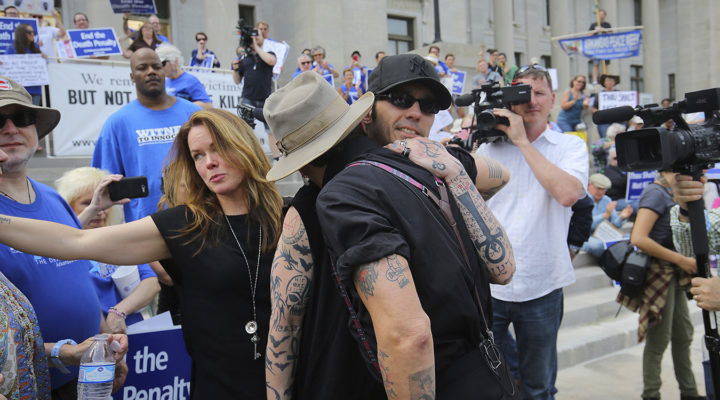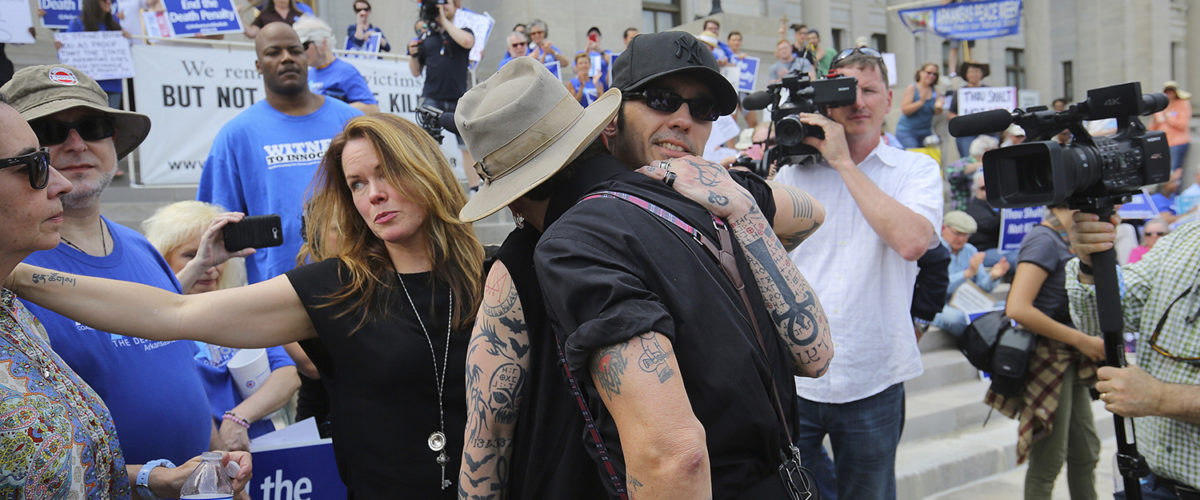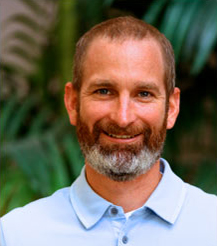It was a Holy Week unlike any other for death-penalty opponents in Arkansas and the rest of the nation.
It began with outrage over the state’s plan to begin executing seven men the day after Easter. It was filled with protests, petition signings, media interviews and prayer vigils.
The week ended with what some may call a Good Friday miracle when Circuit Judge Wendell Griffen, who also is pastor of a Baptist church in Little Rock, issued temporary restraining orders delaying the executions. Injunctions were then issued by a federal judge on Saturday.
In interviews conducted before Griffen’s Friday-night ruling, he and others involved in opposition or studying capital punishment said the week was, to say the least, unprecedented in American death penalty history.
Some were struck by the parallels between the inmates’ situation and the passion of Christ, complete with the complicity of government and religious institutions.
“In my book I write about the moral dwarfism responsible for our public policies coming from within evangelical Christianity,” said Griffen, author of the 2017 book The Fierce Urgency of Prophetic Hope.
“All of that is on full display in this situation,” he said on Thursday.
Griffen said the state’s plan generated astonished outrage among other religious leaders dismayed by the unprecedented display of the cruelty, inconsistency and moral bankruptcy inherent in the death penalty.
The judge and pastor guessed the press coverage generated by the situation may solidify anti-death penalty sentiments and activities in the state.
‘Fits and starts’
Such anti-death penalty attitudes are actually growing nationwide.
“We’re undergoing a climate change, politically, and it’s not that we are seeing the beginning of it, we are in it,” said Robert Dunham, executive director of the Death Penalty Information Center, a Washington, D.C.-based nonprofit that provides analysis and information on trends and issues concerning capital punishment.
“There are fits and starts and steps backwards, but the long-term numbers suggest the support for the death penalty is going to decrease,” he said.
Arkansas’ attempt to execute Bruce Ward, Ron Davis, Ledell Lee, Stacey Johnson, Jack Jones, Marcel Williams and Kenneth Williams in rapid succession stunned many in the state — and even around the world.
Actor Johnny Depp joined former Arkansas death row inmate Damien Echols and other death-penalty opponents at a rally on Friday afternoon, the Associated Press reported.
The shock over the state’s decision was intensified when officials explained the timetable was dictated by the looming expiration date of the execution drugs.
The makers of those drugs objected to their use in the executions and asked a judge to stop that use.
But there are many other factors that make Arkansas’ planned action especially egregious, including the possibility of botched procedures seen in other states attempting executions only hours, or less, apart.
And there are issues of faith.
“Condemning people to die in the name of the state is like Pilate” condemning Christ, Griffen said. “The empire of death is opposed to being an agent of the God of love, life, mercy and redemption.”
‘Vengeance is appealing’
But the death penalty won’t go away without a fight.
“The rhetoric of capital punishment has a strong political appeal,” said Pat Anderson, a former national moderator of the Cooperative Baptist Fellowship and a teacher and author on criminal justice issues.
“Vengeance is understandable and appealing to people.”
Supporters of execution often site the Mosaic code of justice — the eye-for-an-eye argument.
Theologically, that makes little sense since that approach in Moses’ time was considered liberal and progressive because it placed limits on retribution, Anderson said.
But today it serves to rationalize a pay-back mentality among religious conservatives.
“Revenge is boundless. You can never quench the thirst for revenge because it is motivated by such deep, evil impulses,” he said.
However, the Arkansas case has generated positive impulses, as well.
Chris Ellis, minister of mission and outreach at Second Baptist Church in Little Rock, Ark., said he has been inspired by the disturbing events of Holy Week.
“I’ve been calling the governor’s office, I’ve signed two letters to the governor and yesterday I attended a rally at the capitol to commute the sentences,” he said.
The effort will likely get a boost from widespread concern about the social policies of Donald Trump, Ellis said.
“I feel [death-penalty opposition] is an extension of that,” Ellis said. “I am also more committed to bringing about new advocacy on behalf of people who are oppressed or who are marginalized.”
‘We want blood’
The situation was unheard of, Dunham said.
“There has never been anything like this in a single state,” he said.
No state had previously attempted to carry out so many executions in so few days, he said. The most attempted previously was eight in a month — by Texas in 1997.
“There were a couple times in which there have been eight executions nationwide in 11 days with six different states,” Dunham said.
Arkansas’ attempt to execute inmates in multiple, back-to-back fashion also has not occurred before, Dunham said.
“This is unprecedented.”
The incident will likely undermine public support for the death penalty.
“This execution schedule has done long-term damage to the death penalty and galvanized some individuals beforehand not vocal about it,” he said.
The moral deficiencies of Arkansas’ plan, and of capital punishment in general, are just as much a reason to oppose executions, Griffen said.
The state should not kill inmates who are incarcerated and therefore pose no threat to society.
“It’s morally unjustifiable.”
It also compounds and multiplies the original offense by adding another death to the tragedy, he said.
“It is premeditated killing.”
But the sad truth is there is a desire for such killing in American society.
“Quite honestly there is a bloodlust, a blood thirstiness,” he said. “We want blood — we have become the walking dead that we see on television.”
Meanwhile, more than two dozen evangelical leaders delivered a letter April 13 to the office of Arkansas Gov. Hutchinson calling for a stop to the executions.
Baptists including author Tony Campolo, Mercer University ethicist David Gushee and retired seminary professor Fisher Humphreys were among evangelical leaders noting the “unfortunate timing” of the executions, describing Easter as “a sacred day when Christians celebrate Christ’s triumph over death,”
“In Arkansas this year, the specter of death looms uneasily over the celebration of Christ’s resurrection,” they said. “Do not corrupt Holy Week by spending it in preparation for the grisly task of executing individuals in an assembly-line fashion.”
The letter from evangelical leaders called on state officials to immediately stay the impending execution.
“To allow a drug’s expiration date to dictate when an individual will die shows a troubling disregard for the sacredness of human life,” they said.
“Arkansas officials have been clear that they are rushing the executions for exactly this reason,” the letter continued. “They have to occur before the state’s supply of a lethal injection drug expires. In a matter as weighty as taking a life, this justification is woefully inadequate.”
They also voiced concern about the effect so many executions may have on the men and women responsible for carrying them out.
”Executions can be stressful and traumatic events for corrections officials,” they said. “Seven executions in 10 days only exacerbates this risk. It is unfair to put corrections officials through such an ordeal when these executions are unnecessary for public safety.”
One of the signers, Shane Claiborne of The Simple Way, elaborated in an April 5 perspective article in the Washington Post.
“Arkansas, as religious as it may be, will miss the point of Easter if it does not stop the executions,” Claiborne contended. “When we kill those who kill to show that killing is wrong, we legitimize the very evil we hope to rid the world of, the evil that sent Jesus to the cross.”
Others signing the letter included Tom LeGrand, director of the IMPACT Center for Christian Ethics & Social Responsibility at Gardner-Webb University; Jonathan Wilson-Hartgrove, associate minister of St. Johns Missionary Baptist Church in Durham, N.C.; Kheresa Harmon, director of admissions at Gardner-Webb’s School of Divinity, and Tony Tench, pastor of First Baptist Church in Shelby, N.C.
Other names include Jonathan Merritt, son of former SBC President James Merritt and a senior columnist for Religion News Service, and Brian McLaren, a Christian author and theologian scheduled to speak at this summer’s Cooperative Baptist Fellowship General Assembly in Atlanta.
— BNG news editor Bob Allen contributed to this article.




